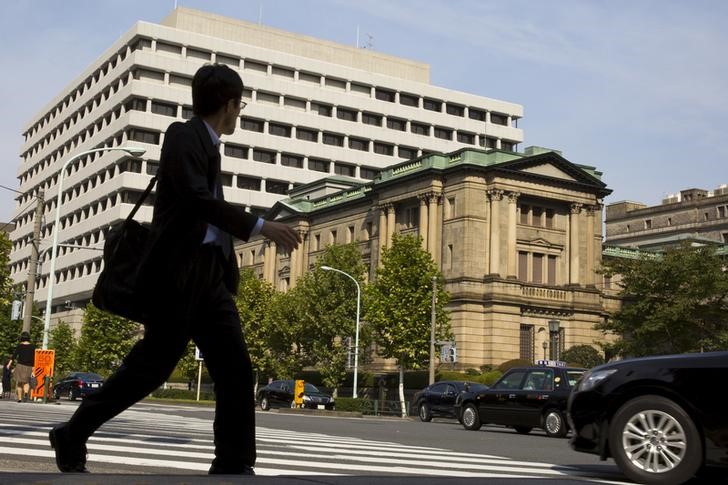(Bloomberg) -- The new normal of remote work has yet to reach the traders who deal with the Bank of Japan.
Japan’s central bank doesn’t allow home computers to connect to its network for conducting asset purchases and other market transactions, raising concerns at financial firms as coronavirus cases in Tokyo surge. At least three have asked the BOJ whether traders can participate in its operations from outside the office, only to be met with a refusal, people familiar with the matter said.
The so-called BOJ-Net infrastructure, used for trillions of yen in transactions daily, is connected via dedicated cables to computers at dozens of financial firms so they can trade assets with the central bank or buy bonds from the government. The monetary authority is concerned that allowing access from home would risk cybersecurity, the people said, asking not to be named because the matter is private. By contrast, the U.S. Federal Reserve and European Central Bank have allowed trading with counterparties at home.
Requiring traders to be on site is hampering the efforts that financial firms have been making to accommodate remote work in a country where long hours in the office were the norm before the crisis. Outmoded workplace practices such as a reliance on physical paperwork have come under the spotlight during the outbreak, prompting Prime Minister Shinzo Abe to call for a review.
The BOJ’s asset purchases are “basically impossible” for financial firms to skip because they represent a rare revenue source in an economy where interest rates are kept around zero or below, said Hideyasu Ban, a Jefferies (NYSE:JEF) analyst. Clients’ orders to sell their Japanese government bonds to the central bank may add to pressure to keep people in the office, he said.
Traders at 56 registered financial institutions use BOJ-Net, or the Bank of Japan Financial Network System, from designated office computers to sell bonds to the central bank. Of them, 21 are also primary dealers, using the network to bid at the finance ministry’s debt auctions.
The central bank buys the securities as part of its efforts to pump money into Japan’s ailing economy, usually generating a profit for the sellers. More than 200 trillion yen ($1.9 trillion) of funds and government bonds were transacted daily over BOJ-Net in 2018, the latest figures show.
The pandemic has prompted the BOJ to make some concessions. It has started to allow financial firms to use designated computers in their backup offices, the people familiar with the matter said. It also offers an option for traders to fax their orders, though the participants viewed that as unrealistic for fast-paced market transactions, the people added.
The BOJ declined to comment.
Financial firms need at least two employees in the office if they want to sell government bonds to the central bank: one to enter the amounts at the assigned computers and the other to check their accuracy, the people said. In July, the BOJ conducted operations to buy 17.9 trillion yen of short- or long-term government debt on 14 out of 21 business days.
The primary dealers also needed staff in the office on another five business days last month to take part in the government’s debt auctions.
The central bank’s security concerns are reasonable, according to former BOJ policy board member Takahide Kiuchi. Japan’s economy would face “chaos” if hackers were to interfere with interbank transactions, the Nomura Research Institute Ltd. economist said.
“But it could eventually face criticism if it keeps giving the cold shoulder to requests from financial firms,” he added. “So I expect it will take a flexible stance to signal it will do what it can.”
©2020 Bloomberg L.P.
